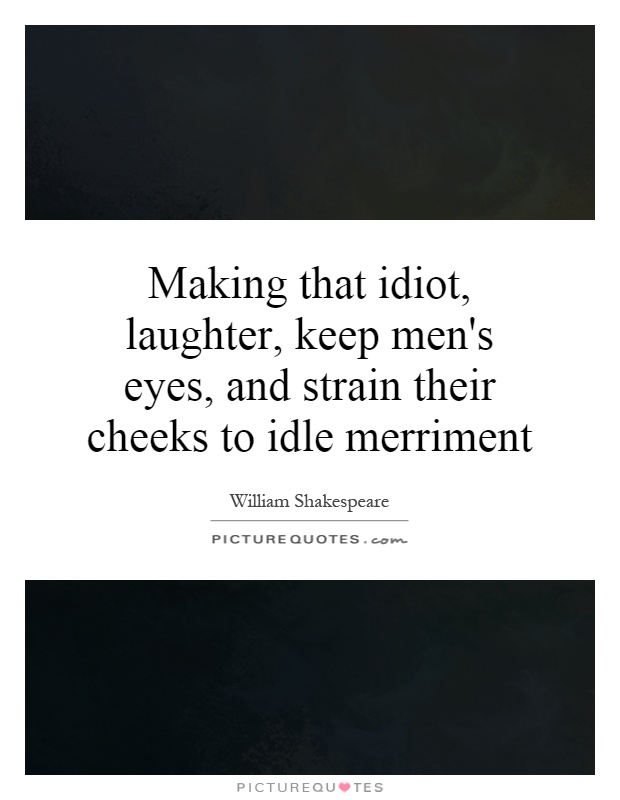Making that idiot, laughter, keep men's eyes, and strain their cheeks to idle merriment

Making that idiot, laughter, keep men's eyes, and strain their cheeks to idle merriment
In the world of William Shakespeare, laughter was often used as a tool to mask deeper emotions and intentions. In many of his plays, characters would use humor and wit to distract others from their true motives or to manipulate situations to their advantage. This idea is perfectly encapsulated in the quote, “Making that idiot, laughter, keep men's eyes, and strain their cheeks to idle merriment.”Shakespeare understood the power of laughter and how it could be used to control and influence others. By making someone laugh, one could divert their attention away from important matters or make them more susceptible to persuasion. Laughter could also be used as a way to disarm enemies or to create a false sense of camaraderie. In this way, laughter could be a powerful weapon in the hands of a skilled manipulator.
The phrase “Making that idiot, laughter, keep men's eyes, and strain their cheeks to idle merriment” suggests that laughter can be used to distract and deceive. By portraying laughter as an “idiot,” Shakespeare is highlighting its superficial and deceptive nature. Laughter can be a mask that hides true intentions and emotions, leading others to believe that everything is light-hearted and carefree when in reality, there may be darker motives at play.












 Friendship Quotes
Friendship Quotes Love Quotes
Love Quotes Life Quotes
Life Quotes Funny Quotes
Funny Quotes Motivational Quotes
Motivational Quotes Inspirational Quotes
Inspirational Quotes